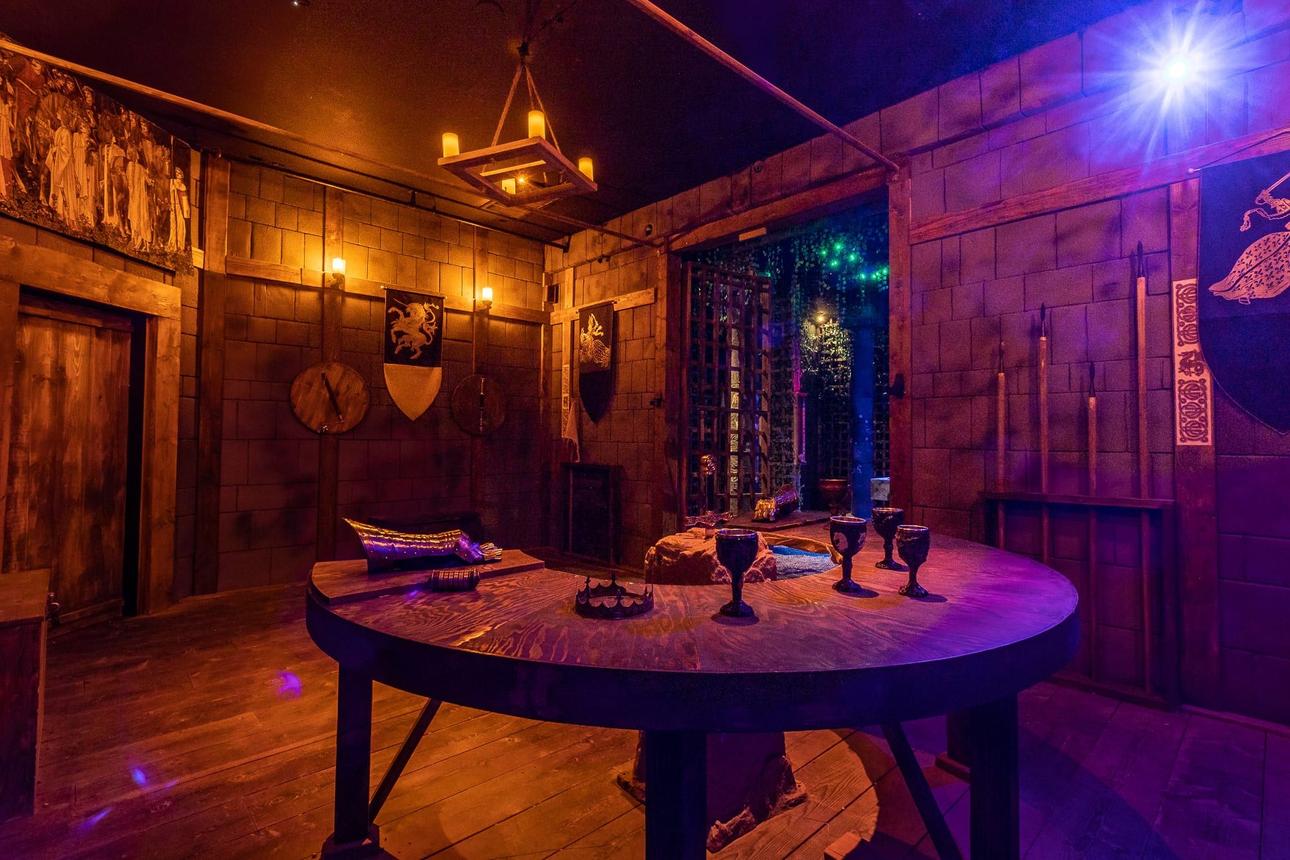Enjoyable and Challenging Escape Room-- Plan Your Following Journey
Enjoyable and Challenging Escape Room-- Plan Your Following Journey
Blog Article
Team Approaches: How to Collaborate Effectively in an Escape Space
Browsing the intricacies of a getaway room requires more than mere interest; it needs a well-coordinated method based in clear communication, critical role projects, and skilled time management. Groups need to actively pay attention to each participant's understandings, designate functions that align with individual toughness, and keep routine check-ins to guarantee emphasis and prevent redundancy. By cultivating an environment that values communication and versatility, groups can dramatically increase their efficiency and success rates. The nuances of these strategies can change the experience, yet exactly how specifically can they be applied to maximize the possibility for success?
Establish Clear Interaction

To assist in clear interaction, it is necessary to assign a main point of call for details dissemination. This role entails summarizing searchings for and recommended methods to guarantee every person continues to be on the exact same web page. In addition, embracing an organized approach to discussions can prevent chaotic exchanges. Short, concentrated updates from each group participant can maintain the group informed without overwhelming them with details - best escape room.

Appoint Duties Strategically
While clear interaction establishes the foundation for efficient team effort, designating duties strategically makes sure that each team member's staminas are made use of effectively. In a retreat area situation, the time-sensitive and intricate nature of difficulties demands an efficient technique to job delegation. By recognizing and leveraging individual competencies, teams can enhance their analytical abilities and improve total efficiency.
Somebody with an eager eye for detail could stand out in finding concealed things, while a logical thinker can be better fit to resolving puzzles. This role often needs strong organizational and social abilities.
2nd, ensure that functions are adaptable and adaptable. As new challenges arise, the group has to have the ability to pivot, reallocating jobs as required. This adaptability helps maintain momentum and avoids bottlenecks that could occur due to stiff function tasks.
Eventually, a critical technique to role job not just makes the most of the toughness of each group member but additionally cultivates a natural setting, driving the team in the direction of a successful escape.
Use Diverse Skills
Recognizing and utilizing the diverse skills within your group can considerably boost your performance in an escape area. Each team participant brings one-of-a-kind toughness to the table, and successfully leveraging these capacities can speed up problem-solving and boost total effectiveness. As an example, an employee with solid logical skills might stand out at analyzing complicated codes or patterns, while one more with eager empirical capacities might promptly find concealed hints that may forget.
Effective communication is vital to utilizing these varied abilities. Urge staff member to voice their understandings and ideas immediately, making certain that all prospective options are taken into consideration. This inclusive strategy promotes Home Page a dynamic environment where imagination and essential reasoning can flourish. Additionally, designating jobs that straighten with each member's staminas can stop traffic jams and make certain that progress is continual.
In addition, diversity in abilities usually equates to diversity in assuming styles, which is invaluable in an escape area setup. While some difficulties might call for rational thinking and precision, others could gain from creative and association of ideas. By identifying and leveraging this diversity, teams can deal with a broader series of difficulties better, therefore boosting their chances of a successful retreat.
Manage Time Properly

Determine visible puzzles and separate jobs based on group participants' staminas, ensuring that no one is idle. This practice can help keep the group concentrated and prevent time from slipping away undetected.
Additionally, avoid one-track mind. If a challenge is taking also long, rotate employee or move on to another challenge, returning later on with fresh perspectives. Communication is extremely important-- maintain everyone upgraded on addressed challenges and staying jobs to prevent redundant efforts.
Finally, make use of any hints or ideas moderately but strategically - best escape room. Recognizing when to request help can conserve useful time. By sticking to these time management principles, groups can considerably improve their opportunities of a successful and satisfying getaway room experience
Debrief and Mirror
Representation is an important facet of team development and enhancement in the context of escape areas. When the difficulty is finished, whether efficiently or not, it is important for the group to participate in an organized debriefing session. This process enables team participants to examine their performance, recognize toughness, and identify areas for renovation.
Start the debrief by reviewing what worked out. Highlight specific instances of effective communication, analytical, and cooperation. Recognizing these favorable behaviors strengthens them and urges their a fantastic read repetition in future challenges.
Following, resolve the obstacles encountered. Go over moments of complication, miscommunication, or inefficient techniques. Encourage an open and positive discussion where group members can share their perspectives without worry of objection. This cultivates a society of continuous enhancement and knowing.
Final Thought
Finally, successful cooperation in an escape space is predicated upon clear interaction, calculated duty assignments, the effective utilization of diverse abilities, and skilled time management. Normal check-ins and structured debriefings are necessary for preserving focus and fostering continual renovation. By producing a cohesive and adaptive group atmosphere, the possibility of efficiently resolving problems and accomplishing the objective of leaving the room is significantly boosted. This technique not just makes sure success however additionally advertises cumulative Visit Website growth and knowing.
Report this page